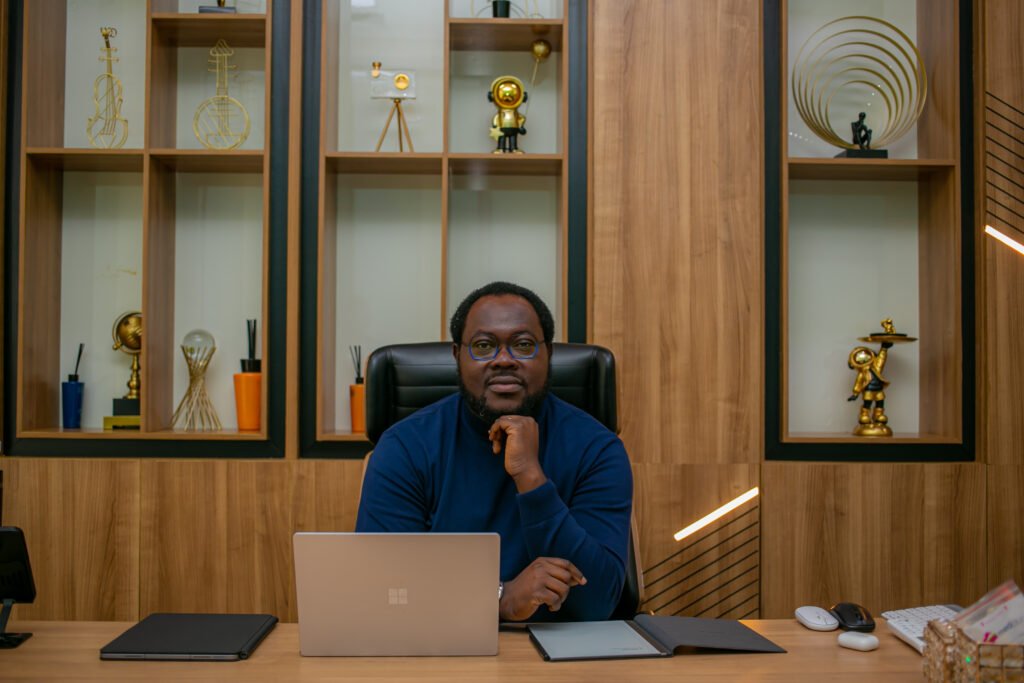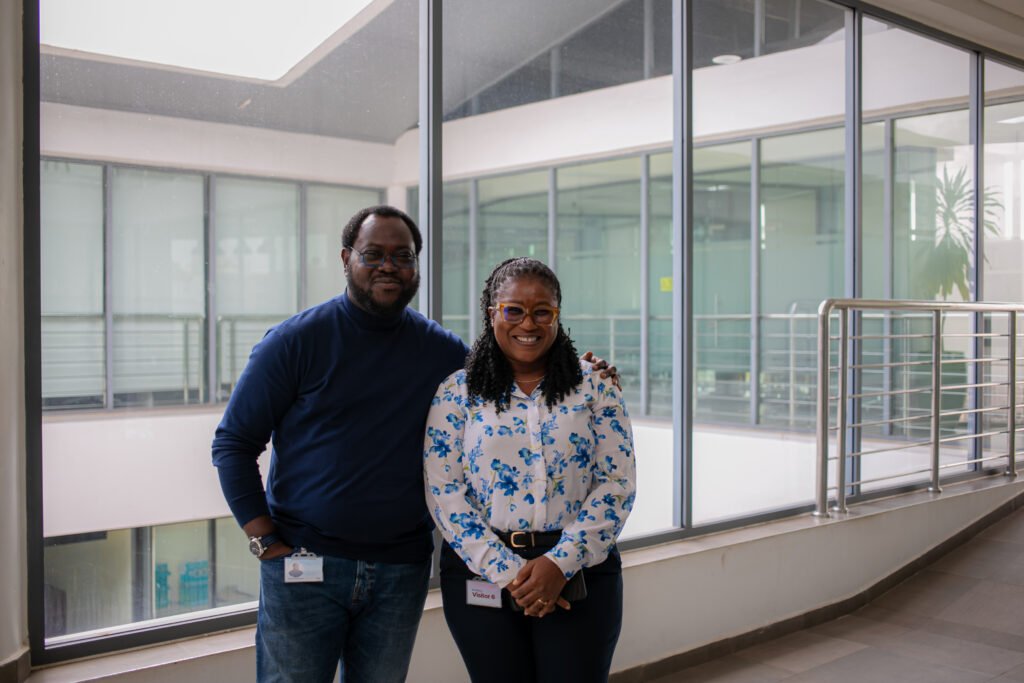Business
Trump threatens Russia with tariffs while unveiling new Ukraine weapons plan

 Getty Images
Getty ImagesUS President Donald Trump has announced the US will send “top-of-the-line weapons” to Ukraine via Nato countries, while also threatening Russia with severe tariffs if a deal to end the war is not reached within 50 days.
“We want to make sure Ukraine can do what it wants to do,” Trump said following a meeting with Nato chief Mark Rutte in Washington.
Rutte confirmed the US had decided to “massively supply Ukraine with what is necessary through Nato” and that the Europeans would foot the bill.
European countries will send Kyiv their own Patriot air defence systems – which Ukraine relies on to repel Russia’s deadly air strikes – and replacements will then be issued by the US, Trump said.
Neither Rutte nor Trump elaborated on the weaponry that will be sent to Kyiv but Rutte said the deal included “missiles and ammunition”.
However, the president did say “top-of-the-line-weapons” worth billions of dollars would be “quickly distributed to the battlefield” in order to support Ukraine.
“If I was Vladimir Putin today… I would reconsider whether I should not take negotiations about Ukraine more seriously,” Rutte said, as Trump nodded.
On the tariffs front, Trump said that the US would impose 100% secondary tariffs targeting Russia’s remaining trade partners if a peace deal with Ukraine was not reached within 50 days.
This would see any country that trades with Russia face the tax if they want to sell their products to the US.
For example, if India keeps buying oil from Russia, US companies that purchase Indian goods would have to pay a 100% import tax, or tariff, when the products reach American shores.
This would make the goods so expensive that US businesses would likely choose to buy them cheaper from elsewhere, resulting in lost revenue for India.
The intention is also to hobble Russia’s economy. Theoretically, if Moscow was unable to generate money by selling oil to other nations it would also have less money to finance its war in Ukraine.
Given that oil and gas account for almost a third of Moscow’s state revenue and more than 60% of its exports, 100% tariffs could make something of a dent Russia’s finances.
Still, the Moscow Stock Exchange Index rose sharply following the announcement, likely as investors were expecting Trump – who last week teased a “major statement” on Russia – to pledge even harsher measures.
Although detail about both the tariffs and the Nato weapons deal was scant, Monday was the first time Trump pledged to make new military equipment to Ukraine since returning to the White House.
 Reuters
ReutersThe briefing was also notable for the tone struck by US president, whose rhetoric on Vladimir Putin has become increasingly harsh.
Not for the first time, Trump implied Kyiv bore some responsibility for Russia’s decision to launch its full-scale invasion of Ukraine in February 2022.
But he mostly appeared frustrated at the lack of progress in ending a conflict which he once seemed to believe could be easily solvable.
Asked about his relationship with Putin, Trump said that the two speak “a lot about getting this thing done” but voiced his displeasure at the fact that “very nice phone calls” with the Russian president are often followed by devastating air strikes on Ukraine – which have been growing in intensity and frequency.
“After that happens three or four times you say: the talk doesn’t mean anything,” Trump said.
“I don’t want to call him an assassin but he’s a tough guy. It’s been proven over the years, he fooled a lot of people – Clinton, Bush, Obama, Biden,” he added. “He didn’t fool me. At a certain point talk doesn’t talk, it’s got to be action.”
Two rounds of ceasefire talks between Russia and Ukraine took place earlier this year but no other meetings have so far been scheduled – something Moscow has blamed on Kyiv.
Ukraine’s President Zelensky is currently hosting US envoy Keith Kellogg in Kyiv and earlier on Monday hailed a “productive meeting” – saying he was “grateful” to Trump for his support.
The Kremlin did not immediately comment on the announcement – but commentary trickling in from Moscow appeared to indicate a measure of relief.
Pro-Kremlin pundit and former Putin aide Sergei Markov called the tariffs announcement “a bluff” that indicated Trump had “given up on trying to achieve peace in Ukraine”.
Senator Konstantin Kosachev argued that “if this is all Trump had to say about Ukraine today, then so far it’s been much ado about nothing”.
In 50 days a lot could change “both on the battlefield and in the moods of the powers that be in the US and Nato,” Kosachev wrote.
Additional reporting by Dearbail Jordan
Business
This multibagger AI stock to be in focus on Wednesday as company secures ₹177 crore order from MeitY’s IndiaAI mission

E2E Networks, a provider of cloud computing services, is likely to be in focus during Wednesday’s trading session, September 3, as the company secured a significant ₹177 crore order from the Ministry of Electronics and Information Technology (MeitY), Government of India, under the IndiaAI Mission.
The company informed investors through a regulatory filing today that it has received a letter from the ministry approving the immediate allocation of GPU resources (H100 SXM and H200 SXM) to GNANI AI for the purpose of building India’s foundational AI model.
E2E Networks will provide H200 SXM and H100 SXM GPUs for a period of 360 days, totaling 1,29,94,560 GPU hours. In its press release, the company said this order further strengthens its position in the national AI infrastructure ecosystem and marks a major step in supporting India’s ambitions in AI capability building.
Meanwhile, IndiaAI functions as an Independent Business Division (IBD) within Digital India Corporation, under MeitY.
India is rapidly building a robust AI computing and semiconductor infrastructure to support its growing digital economy. With the approval of the IndiaAI Mission in 2024, the government allocated ₹10,300 crore over five years to strengthen AI capabilities.
A key focus of this mission is the development of a high-end common computing facility equipped with 18,693 Graphics Processing Units (GPUs), making it one of the most extensive AI compute infrastructures globally. This capacity is nearly nine times that of the open-source AI model DeepSeek and about two-thirds of what powers ChatGPT.
About the company
E2E Networks is an NSE-listed, MeitY-empaneled, AI-focused hyperscale cloud platform offering advanced cloud GPUs and a full ecosystem of cloud technologies designed for the development and deployment of AI/ML/GenAI workloads on large-scale compute clusters.
Domestic brokerage firm InCred Equities has added E2E Networks to its high-conviction list as an AI infrastructure play.
“The company has emerged as one of the top-tier cloud GPU infrastructure providers with a comprehensive line-up, battle-tested software (TIR), and balance sheet strength and parentage post-equity infusion by Larsen & Toubro. It is trusted by researchers, start-ups, and enterprises for its price-performance scalability, predictable and affordable pricing, and open-source technology build,” InCred said in a note.
Larsen & Toubro Limited held a 19% stake in the company at the end of the June quarter. Looking at the stock’s performance, it delivered a massive 9054% return over the last five years.
Disclaimer: The views and recommendations made above are those of individual analysts or broking companies, and not of Mint. We advise investors to check with certified experts before making any investment decisions.
Business
Which Business Functions Are Delivering The Highest ROI From AI

AI ROI
Getty Images – Anton Petrus
The AI return on investment debate is largely over. Companies are no longer asking if it delivers value; they’re asking where it delivers the most and how to scale those gains across the business.
Cross-industry research from TAG Infosphere, supported by WitnessAI, examined 20 sectors and found a universal truth: everyone is projected to see a positive return from AI. The biggest wins are showing up in functions with rich, structured data and repeatable processes. By contrast, areas that rely heavily on human judgment and nuance are progressing more slowly.
Where AI Is Paying Off Fastest
The TAG Analyst Report, Ranking Industries by Their Expected Benefit from Artificial Intelligence (AI) Usage, listed data analysis as the top ROI-positive function, followed by manufacturing and customer service. All three share the same advantage: clear goals, plenty of data to train models, and outputs that can be measured in hard numbers.
- Data Analysis – Drives productivity gains, trims staffing needs over time, and reduces IT costs by replacing less efficient platforms.
- Manufacturing – Predictive maintenance, robotics, and automation that improve output and cut downtime.
- Customer Service – Chatbots, personalization, and smart routing that boost satisfaction while lowering labor requirements.
Lower-ranking functions, such as HR, still yield returns, just not as quickly. That’s less about AI’s capability and more about the nature of the work, which depends on empathy, negotiation, and situational judgment.
Why These Areas Lead
AI shines where inputs are consistent, data is plentiful, and the work can be done at scale. In data analysis, algorithms process massive datasets more efficiently and accurately than humans. In manufacturing, predictive models identify equipment issues before they escalate into costly failures. When it comes to customer service, human agents are freed up for more complex interactions with AI handling common requests instantly.
That doesn’t mean slower-moving industries should sit back and wait. The most effective approach is to invest first in areas that can produce measurable cost savings or new revenue within months, then expand into other functions as the organization builds confidence and skills.
How Leaders Are Using AI Today
According to a recent Prosper Insights & Analytics Survey, 50.2% of executives and 43.6% of business owners already use AI in their daily work
Prosper – Heard of Generative AI
Prosper Insights & Analytics
Top applications:
- Research and summarization
- Writing assistance
- Content Creation
Prosper – What You Use Generative AI For
Prosper Insights & Analytics
These activities line up neatly with high-ROI functions; they’re also relatively low-risk starting points.
The performance picture is more complex. IBM’s 2025 CEO Study found that only 25% of AI initiatives hit their expected ROI in the past three years, and just 16% have scaled enterprise wide. Yet confidence remains high: 85% of CEOs expect efficiency-focused AI investments to deliver positive ROI by 2027, and 77% expect the same for AI growth initiatives.
The Visibility Gap
Even leaders in organizations that have adopted AI lack insight into its actual application. Rick Caccia, CEO of WitnessAI, has seen the disconnect firsthand.
“Executives might think that blocking AI usage is a fine strategy for now, Caccia said, “but employees want to use these tools they’ve been reading about for years. In practice, employees are using anywhere from 2 to 5 times more AI apps than company leaders expect. That makes it impossible to measure what’s really driving value, and it means some of the biggest productivity gains and the risks never show up in official reports.”
Caccia points out that most risks aren’t deliberate. They come from people trying to work better and faster, but in doing so, they expose sensitive data or IP. His advice: enable AI use with the right safety rails instead of banning it outright.
AI as the Main Event
Some executives still treat AI as an add-on to existing tools rather than a core driver of business. Gil Spencer, CTO of WitnessAI, thinks that the mindset is already obsolete.
“The reality is that AI is the main attraction,” Spencer stated. “Pretty soon, you’re just going to tell your AI to research a topic and draft a document or presentation. Business models, development methods, and daily work have undergone fundamental shifts. Organizations that place AI at the center of their workflows will see returns that compound over time. Treat it as a peripheral tool, and you’ll miss out on the exponential ROI curve.”
That shift in thinking is key to unlocking the kind of compounding returns Spencer describes. AI woven into core processes has a multiplying effect; kept at the edges, its impact is incremental at best.
From Proof to Scale
Every sector in the TAG Infosphere and WitnessAI analysis is positioned to benefit from AI. The real differentiator will be how quickly leaders transition from proof of concept to scaled adoption in the areas that matter most. This involves selecting the right starting points, tracking the relevant metrics, and incorporating safety and governance into the plan from the outset.
The ROI conversation has moved on. Now it’s about ensuring the return is not just real, but also repeatable.
Business
Growing Intersections of AI, Automation, and Financial Services Will Drive Business Transformation

Mr. Chukwuma Nwanze is the MD/Chief Executive Officer of Credit Direct Finance Company Limited, one of Nigeria’s leading embedded finance companies. He joined the organisation in 2012 as Head of Strategy and Business Development, where he played a pivotal role in the development of the company’s first Loan Management System, marking the beginning of its digital transformation journey. Over the years, he has held various leadership positions, including Chief Finance Officer and Executive Director of Finance and Strategy.
In 2023, he was appointed MD/CEO, bringing over a decade of experience in financial structuring, reporting, and management. Under his leadership, Credit Direct has undergone a significant digital transformation, leveraging artificial intelligence and automation to enhance customer experience and operational efficiency. The company has introduced innovative products such as the Credit Direct Mobile App, CLARA (an AI-powered assistant), and the Buy Now, Pay Later solution, positioning itself as a digital-first financial technology company. Mr. Nwanze holds a Bachelor of Business Administration from Cambridge International College and is a Doctoral candidate in Business Administration at Edinburgh Business School, Heriot-Watt University. He speaks on his commitment to fostering a culture of innovation, excellence, and empathy within the organisation, aligning with Credit Direct’s mission to ensure access to financial solutions as a universal opportunity.
So, looking at FinTech in Nigeria, what trend do you foresee shaping the future of embedded finance and digital learning?
I believe FinTech is rapidly becoming a buzzword. In the next five years, I doubt we will even refer to them as FinTech companies, as every financial instrument will inherently be digitally specific. Every financial instrument will embody FinTech, driven by seamless Application Programming Interface (API)-led integrations where systems and platforms communicate effortlessly. We anticipate intelligent, swift, and astute decision-making as AI becomes deeply embedded across every facet of finance, fostering more inclusive lending.
This will enable on-the-spot credit decisions, irrespective of their complexity. The growth of embedded finance will be significant, with Credit Direct proudly leading this charge not only in Nigeria but across Africa. We foresee a surge as finance becomes seamlessly incorporated into everyday living. This transformation is set to unfold rapidly in the coming years. Furthermore, I anticipate substantial growth in financial inclusion, directly linked to the increasing smartphone penetration and internet accessibility in Nigeria. As the world becomes increasingly mobile, the FinTech space will witness considerable activity and innovation.
Since your appointment as MD/CEO in 2022, what have been the most transformative changes you have driven at Credit Direct?
I have been with Credit Direct for 13 years in total, including the decade prior to my CEO appointment. The transformative changes since my appointment are a continuation of the excellent work initiated by my predecessor and the dedicated team, a legacy I am immensely proud to have inherited and built upon. My primary responsibility has been to digitally transform Credit Direct, a mission that has yielded significant milestones over the past two and a half years.
Firstly, we have diversified significantly beyond traditional lending, now offering digital payments, retail investments, and widely available embedded finance solutions. Our all-in-one mobile app, launched earlier this year, already serves over 200,000 customers, and we are targeting one million users within the next few months. We have fundamentally reorganised as a digital-first business, ensuring all our verticals—lending, payments, and investment—are digitally centric. We operate as an essentially paperless organisation; one would be hard-pressed to find a printer here, reflecting our commitment to this aspiration. We have now integrated digital technology into every aspect.
Our customers can access credit in as little as two minutes today. For instance, individuals dialling *5120# receive funds instantly, while those utilising our WhatsApp channel gain access within minutes. Similarly, accessing credit via mobile or web is equally swift. Our ‘buy now, pay later’ solutions, for example, enable customers to purchase devices within seven minutes, allowing them to leave the store with their new phone. These transformational changes have unfolded over the past two and a half years under my leadership. However, equally paramount has been driving the transformation of our people; I firmly believe no organisation can truly thrive without a strong foundation in its human capital.
Our workforce productivity has more than doubled in recent years, a direct result of our efforts to reshape our culture towards enhanced output. This has led to comprehensive business transformation across financial performance, digital offerings, and customer perception. Crucially, we have experienced a profound cultural transformation within our team; as we grow more productive and energised, our values are directly reflected in the overall financial performance of the business.

So let’s look at CLARA. Can you share its impact with us?
Certainly, let me tell you about CLARA, which stands for Credit, Lifestyle, and Revenue Assistant. CLARA emerged from our Innovate Fest programme in 2023, built by a young individual who had just completed their National Youth Service Corps (NYSC). This exemplifies Credit Direct’s inherent culture of bottom-up innovation. As an AI-powered assistant, CLARA aids customers with loan decisions, will soon guide investment choices, and provides answers to all queries related to their Credit Direct journey.
From a business perspective, CLARA has been highly instrumental, significantly enhancing our operations by responding to inquiries 20 times more efficiently than our contact centre agents. While AI is crucial, we ensure CLARA always maintains a human touch. The common query is whether AI will lead to job losses. My consistent response is that for a forward-thinking organisation, AI complements the existing workforce. While acknowledging potential challenges and ethical considerations, I often argue that for a nation like Nigeria, with its young population and high youth unemployment, AI can significantly reduce inefficiencies—performing tasks that might otherwise require 500 people. Therefore, finding the right balance is paramount.
Our aim is to balance leveraging AI for operational efficiency while continuing to create employment opportunities, as AI-driven efficiency facilitates business expansion. Ultimately, we strive to achieve a harmonious balance between technology and humanity.
So, having risen through the ranks from Head of Strategy to the MD/CEO, what leadership thoughts have defined your approach to building a future-ready FinTech company?
A key lesson throughout my 13 years at Credit Direct, from Head of Strategy to CEO, is that strategy alone is insufficient; it is people who make strategy tangible. For any strategy to work effectively, an engaged workforce is crucial. Our recognition as a ‘great place to work’ is a testament to the exceptional people we are blessed with at Credit Direct, who genuinely enjoy their roles.
For leaders, a daily combination of courage, adaptability, and emotional intelligence is paramount. With nearly a thousand diverse employees at Credit Direct, the challenge lies in unifying everyone towards a common direction while preserving individual identity. Our greatness as an organisation stems from individuals being able to truly be themselves while collaborating effectively. Vision is important and powerful, but culture is paramount. We spare no effort in cultivating the right culture, as it integrates our unique experiences without diluting individual identities. When these experiences converge towards a common goal, operations become seamless.
Our business has consistently grown by nearly 90 per cent annually—a rate surpassing most Nigerian financial institutions—which I directly attribute to our people’s culture. Indeed, as Peter Drucker famously stated, “Culture eats strategy for breakfast,” a philosophy central to my leadership.
What would you say in the past two years that you assumed office gives you joy about your performance?
Witnessing the transformation of the business brings me immense joy. What initially seemed a long-term undertaking became achievable through the ambitious targets my team and I set. In just two and a half years, the business I inherited is fundamentally different from what exists today.
It is truly exciting to confidently state that we have digitally transformed this business, crucially, without the organisation losing its soul. We have retained our identity and essence as a collective, transforming the business successfully while achieving outstanding results, all without making our people unhappy.

What’s next for Credit Direct under your leadership?
What is next for Credit Direct? We intend to continue dominating our chosen niche in the financial services industry, committed to realising our vision of becoming Africa’s leading embedded finance business, extending our footprint beyond Nigeria into the broader African continent in the coming months.
We will deepen our focus in new ventures while maintaining our credit-led identity, broadening our spectrum in payments, investments, and other financial services. Beyond being a technology-first organisation, we will lead with artificial intelligence in credit decisioning, driving operational efficiency, and enhancing customer centricity.
What’s your perspective on the growing intersections of AI, automation, and financial services?
The intersection of AI, automation, and financial services is significant. I believe AI can be effectively layered onto automation; the more automated a business, the easier it becomes to fully leverage AI’s benefits. AI itself will become commonplace and highly commoditised in the coming years. Its applications today are vastly different from two or three years ago, and I am confident that within five years, it will be so normalised, we may even refer to it by another name. However, technology evolves incredibly quickly.
From simple automation, we saw machine learning, then robotic process automation. Ultimately, systems and technologies will become far smarter. They will not only mimic human wisdom but surpass it. Businesses must leverage this new knowledge for efficiency, though always within safe governance frameworks. Crucially, as Africans, we must not misuse artificial intelligence, as our societal narratives differ from those of the Western world. For example, while Norway or Sweden contend with ageing populations, Nigeria faces millions of unemployed graduates and 25 million out-of-school children.
We must find the right balance: participating in global evolution while ensuring AI aligns with our cultural and national realities. Copying Western contexts is artificial; we must contextualise AI for our specific needs. I believe AI will be amazing, driving business transformation. However, people will always be essential, as everything is imbued with soul, which originates from people, especially within a strong organisational culture. This means embedding financial services—lending, payments, savings, and insurance—into the everyday lives of people and businesses without requiring traditional brick-and-mortar processes or complex financial institutions.
It’s about meeting people where they are, in their communities and marketplaces, where they may not yet have access to these products. Consider this: if you are on a train and run out of money, being able to access credit to complete your journey demonstrates truly embedded finance. It is about integrating finance into everyone’s everyday life.
What sets us apart is our identity as a credit-first, capital-light, and purpose-driven organisation. We have passionately focused on credit for 18 years.
This business, like many others, has only raised capital once in 18 years, proving our capital efficiency and consistent profitability. We achieve this by working through payroll systems, cooperatives, and various e-commerce platforms. By blending technology with our extensive market knowledge, we have consistently provided real value to our customers, dealers, and businesses alike over the years.
So for this past 18 years or so, what has been the most challenging thing that you have faced?
In its 18 years of existence, the organisation has navigated a global financial meltdown and two recessions, building significant resilience. Today, we have served nearly 2 million customers, providing access to credit, payments, and investments for the underserved. The key lesson learned is that the right business approach guides you through difficult times. We have survived turbulent seasons—marked by macroeconomic challenges and unforeseen storms—due to our resilient model and, crucially, the trust our customers place in us. That trust is a byproduct of the value we create.
As a purpose-driven organisation, our focus extends beyond mere profits to making a meaningful impact on our customers’ lives. For instance, some of our customers’ children have gained access to proper education through our facilities. Indeed, I have four colleagues whose parents previously used our services to fund their schooling, demonstrating the full-circle impact when they later joined us as employees. This purpose mindset drives us, ensuring we impact the communities we serve. While profitable, we are committed to ensuring our operating society feels the organisation’s positive impact beyond mere profits.
How is Credit Direct navigating regulatory shifts in the Nigerian financial system?
We are regulated by the Central Bank of Nigeria, the apex bank, and I view them as partners in our progress. They introduce the discipline, governance, and security essential for every business. Their frameworks help organisations structure themselves to provide shareholder value and make a meaningful societal impact, which I believe is essential for any successful business.
Regulators, for me, are partners; they compel deep thought into what truly constitutes a good business. Thus, a sustainable and successful business operates with a solid regulator. We are always pleased to be regulated by the Central Bank, as their detailed guidelines make us a better organisation. While some perceive regulatory oversight as overreach, I believe it positions us for future sustainability and helps avoid ‘concern issues.’ That is my perspective.
What role does the Credit Direct Mobile app play in deepening financial inclusion?
Our Credit Direct Mobile app, launched two months ago, already has approximately 200,000 active users. Central to our business is making financial solutions a universal opportunity, with a constant focus on the underserved and underbanked. Our mobile platform is a key channel, enabling the underserved to borrow, save, invest, and grow. Users can achieve decent returns on investments, facilitate daily payments, and access credit for daily life management.
Crucially, access is not limited to hyper-urban areas; individuals in semi-urban and rural regions also benefit. Credit Direct operates in approximately 25 Nigerian states, covering numerous local governments, serving customers beyond urban centres. It is fundamental to our essence to provide digital channels that reach everyone. Beyond the mobile app, our USSD products cater to those without smartphones, allowing credit access via feature phones by dialling *5120#. Most customers using this service can perform numerous transactions via the short code. As a technology-first digital finance company, we prioritise efficient reach over traditional channels, and we observe consistent daily traction.
-

 Business4 days ago
Business4 days agoThe Guardian view on Trump and the Fed: independence is no substitute for accountability | Editorial
-
Tools & Platforms3 weeks ago
Building Trust in Military AI Starts with Opening the Black Box – War on the Rocks
-

 Ethics & Policy1 month ago
Ethics & Policy1 month agoSDAIA Supports Saudi Arabia’s Leadership in Shaping Global AI Ethics, Policy, and Research – وكالة الأنباء السعودية
-

 Events & Conferences3 months ago
Events & Conferences3 months agoJourney to 1000 models: Scaling Instagram’s recommendation system
-

 Jobs & Careers2 months ago
Jobs & Careers2 months agoMumbai-based Perplexity Alternative Has 60k+ Users Without Funding
-

 Education2 months ago
Education2 months agoVEX Robotics launches AI-powered classroom robotics system
-

 Funding & Business2 months ago
Funding & Business2 months agoKayak and Expedia race to build AI travel agents that turn social posts into itineraries
-

 Podcasts & Talks2 months ago
Podcasts & Talks2 months agoHappy 4th of July! 🎆 Made with Veo 3 in Gemini
-

 Education2 months ago
Education2 months agoAERDF highlights the latest PreK-12 discoveries and inventions
-

 Education2 months ago
Education2 months agoMacron says UK and France have duty to tackle illegal migration ‘with humanity, solidarity and firmness’ – UK politics live | Politics


